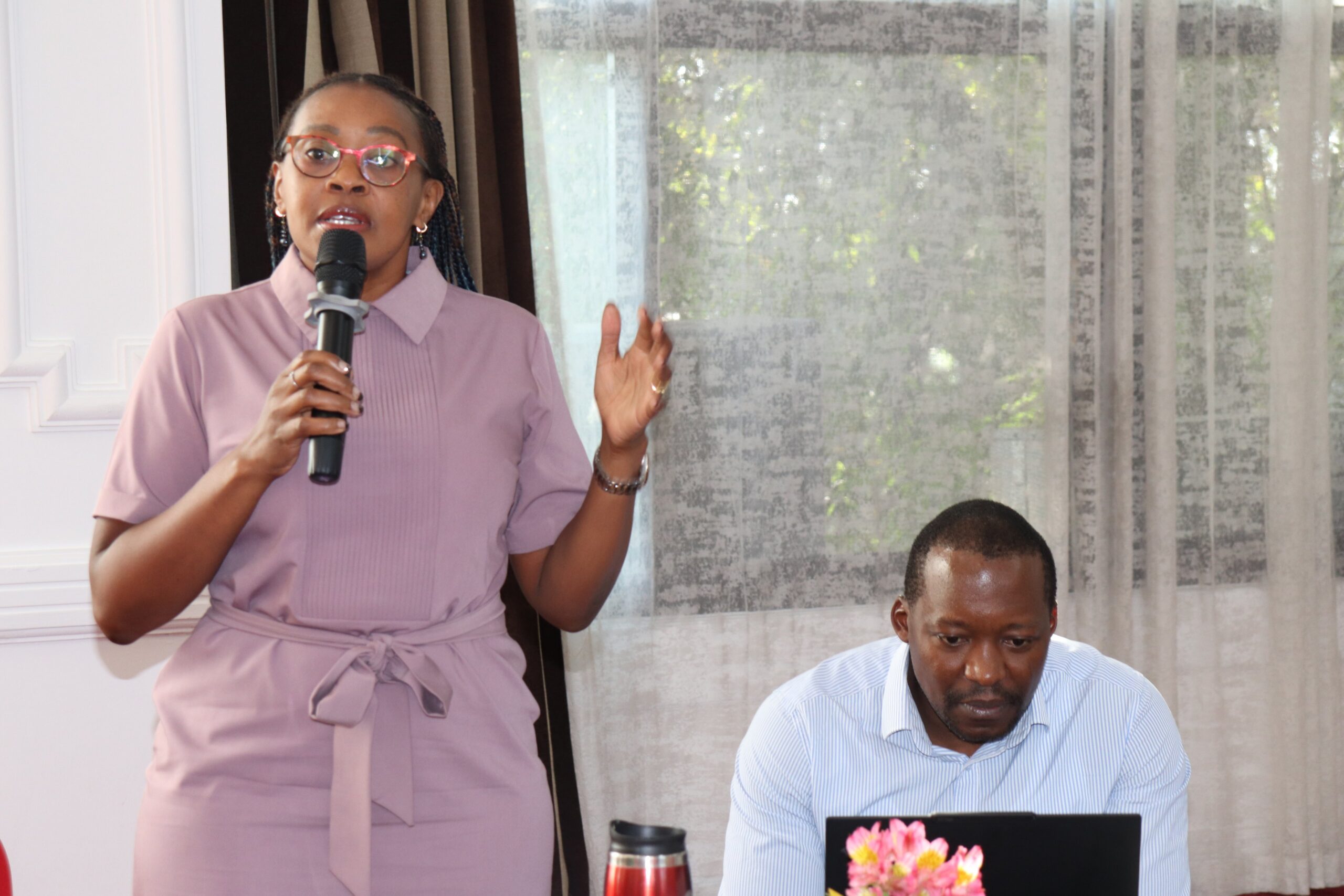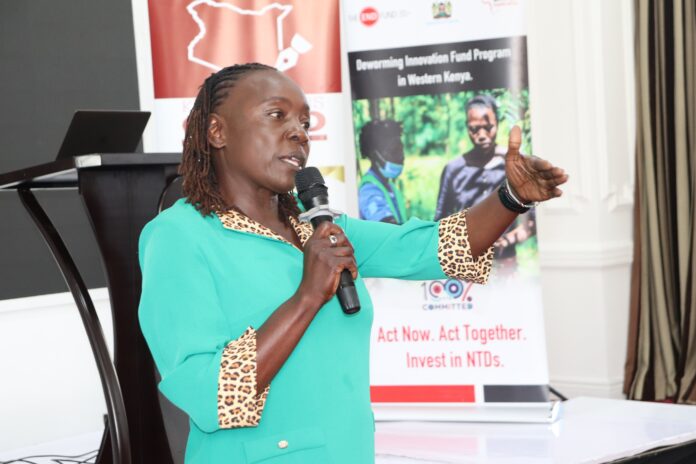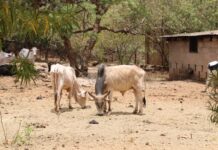|
Getting your Trinity Audio player ready...
|
By Mercy Kachenge
Nairobi, Kenya: The Neglected Tropical Diseases (NTDs) represent a diverse group of communicable diseases prevalent in tropical and subtropical regions. According to the World Health Organization (WHO), 20 NTDs are recognized globally, including Human African Trypanosomiasis (sleeping sickness), Trachoma, Snake bites, and Ectoparasites (like jiggers). In Kenya, over 25 million people live with one or more NTDs, with 18 out of the 20 WHO-listed NTDs being endemic in the country.
Roughly 1.65 billion people, including almost one billion children, are estimated to be affected by Neglected Tropical Diseases according to the WHO. Africa bears 40% of the global burden, necessitating treatment for 580 million people. Kenya’s NTD program, implemented by the Division of Vector-Borne (DVB) and NTDs, has had considerable success in the last decade, including the eradication of Guinea Worm. However, there are still obstacles to overcome, including inadequate government engagement, misaligned data repositories, and gaps in the supply chain.
“Neglected tropical diseases affect people who are not able to take care of themselves. they are traditionally the diseases of poverty however we are not all immune because of transmission” explains Irene Chami, Director of Programs at the End Fund.
Social Behavior Change Communication (SBCC) is part of Kenya’s NTD master plan, focusing on raising awareness about the importance of Water, Sanitation, and Hygiene (WASH) practices. Campaigns educate communities about the risks of poor hygiene and the benefits of healthy behavior changes. The master plan’s pillars include WASH, BCC and resource mobilization.

Vincent Ouma, AMREF’s Program Manager for NTDs, highlights the neglect of these diseases due to their prevalence among vulnerable populations, reflecting broader community inequalities. Effective strategies to tackle NTDs like Soil Transmitted Helminthiasis (STH) require a multi-pronged approach, with WASH being crucial by providing safe water and sanitation infrastructure, coupled with hygiene education, can significantly reduce the incidence of these diseases.
WASH interventions are vital in breaking the transmission cycle of NTDs, many of which thrive in contaminated water sources. Clean water and sanitation facilities disrupt the life cycle of pathogens, preventing infection at its source. Mass Drug Administration (MDA) programs are more effective when combined with robust WASH initiatives, creating healthier environments and making MDA more impactful and sustainable.
Data reveals that 41% of Kenyans lack access to clean water, and 71% lack basic sanitation, underscoring the need for increased investment in WASH infrastructure, particularly in vulnerable communities where NTDs are endemic. Investing in WASH yields long-term benefits, reducing the need for recurring drug treatments and ensuring community health and well-being.
Advocacy and joint efforts are essential for counteracting NTDs in Kenya. Providing hand washing facilities in schools, health facilities, and households addresses WASH deficits in endemic counties.
Aida Binale, representing the Kenya WASH Alliance, accentuates the inextricable link between WASH and NTDs. She underscores how inadequate access to WASH facilities and behavior change challenges contribute to the persistent spread of NTDs.
Recognizing the urgency of addressing this issue, the Kenya WASH Alliance collaborates with the Ministry of Health to synergize WASH and NTD initiatives. This collaboration aims to ensure that water and sanitation budgets are prioritized and efficiently utilized to combat NTDs effectively.
Dr. Mary Amuyunzu Nyamongo, the esteemed founder of the African Institute for Health and Development (AIHD), further emphasizes the significance of integrating NTDs into mainstream health discussions and policy dialogues. She advocates for the inclusion of NTDs in Universal Health Coverage (UHC) conversations, recognizing their impact on overall health and well-being.
“As a country, we need to be responsible and dwell around behavior change. NTDs are a cause of our behavior and our infrastructure. We need to sustain these interventions and educate our communities” explained Dr. Mary.
Leveraging partnerships at both national and county levels is critical for the success of these initiatives. Collaborating with stakeholders like the Ministry of Health, The End Fund programs, and the ARISE fund can comprehensively and sustainably address WASH deficiencies, mobilize resources, and support the ongoing fight against NTDs in the country.














